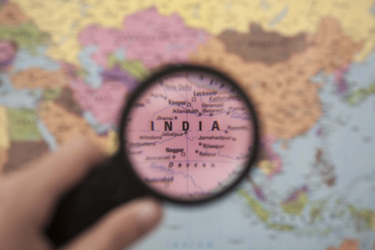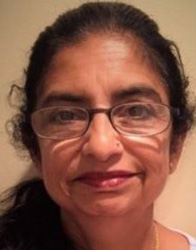After Government Debacle, Is It Any Easier To Perform Clinical Trials In India?

By Ed Miseta, Chief Editor, Clinical Leader

In May 2014, I interviewed Mithra Bindhu of India-based Asiatic Clinical Research to get an update on performing clinical trials in that country. At the time, the regulatory structure was undergoing significant change. The DCGI (Drug Controller General of India) had recently attempted to overhaul the entire system. The transformation took a long time, complicated the process of conducting trials in India, and caused some sponsors to question the value of doing business there. It also caused many CROs to close their doors.
Has the situation changed in the past two years? I recently reconnected with Bindhu to find learn how the changes are affecting the market and what sponsors can expect moving forward.
Ed Miseta: India makes up one-sixth of the world's population, and therefore, has a large portion of the world's health problems. Are developed countries performing enough clinical trials in India?
 Mithra Bindhu: Developed countries are certainly conducting clinical trials in India, but enough is a subjective term. The type of companies who can handle the complexities of a global trial are typically large pharma and biotech companies. I am aware of some medium-sized biotech firms that are also trying to conduct trials in India. The goals are different for each category. Big pharma and biotech companies are looking to enter the Indian market to realize the potential of higher revenues based on the population of 1.2 billion people. The medium-sized biotech and pharma companies are looking to create added value for their molecules before selling them to a bigger company.
Mithra Bindhu: Developed countries are certainly conducting clinical trials in India, but enough is a subjective term. The type of companies who can handle the complexities of a global trial are typically large pharma and biotech companies. I am aware of some medium-sized biotech firms that are also trying to conduct trials in India. The goals are different for each category. Big pharma and biotech companies are looking to enter the Indian market to realize the potential of higher revenues based on the population of 1.2 billion people. The medium-sized biotech and pharma companies are looking to create added value for their molecules before selling them to a bigger company.
Miseta: India has a great need for affordable and practical screening programs. Would a greater number of trials provide more opportunities for individuals to have access to health care?
Bindhu: India already has affordable screening programs by the Government of India (GoI). However, this socialist offering is woefully inadequate as the infrastructure is not that great compared to private hospitals. I have personal experience with the program as our family used it when I was growing up. So, I do not believe increasing the number of clinical trials would provide better access to health care unless the trials involve new technologies or new processes. Of course new technologies and processes would also have their own risks and rewards.
Miseta: Is the Indian government doing enough to encourage bio and pharma companies to perform trials in India?
Bindhu: After the debacle of crushing the clinical trials industry with the very slow overhaul of the approval process, the GoI has been trying to encourage clinical trials in India. While the overhaul was really slow, the process is now very clear. More checks and balances have been put in place for certification of sites, ethics committees, and limiting the number of concurrent trials by a principal investigator. Overall, this will translate into better quality trials and cleaner data than what existed prior to the overhaul.
Miseta: Does India have enough trained and qualified medical personnel to perform additional trials?
Bindhu: This is just my personal opinion, but I don’t believe all medical doctors can conduct clinical trials. They are trained to be physicians. For a medical doctor to conduct a trial, he or she needs to be trained how to conduct the trial per ICH-GCP guidelines. Many doctors are trained by the sponsor during the investigator meeting where they learn specifics about the protocol and inclusion/exclusion criteria. Some are also trained outside India when they attend conferences. The training is also provided by several small schools and typically attended by CRAs and CRCs, but not medical doctors.
Miseta: I have heard people say the system in place in India values quantity over quality. Do you agree?
Bindhu: Absolutely not. Quality has been given top priority for trials in the nearly 10 years that I have been in this industry. In the past, data from trials in India were not deemed as good as from other sources, and the reason for this was that some sponsors had a bad experience. But this was before regulations were changed. The regulations at that time (during the 1990s) were not clear or not adequately enforced.
Miseta: Most of the trials underway in India are industry-sponsored studies. Why are more of them not funded by the public or institutions?
Bindhu: As is the case everywhere, industry has the deepest pockets so it tends to fund more trials compared to institutions. That being said, there are trials being conducted in India by National Institutes of Health, Duke University, and more. Another sector that is getting involved in trials are the nonprofit groups, such as The Gates Foundation, Aeras, One World Health, PATH, and more.
Miseta: What are some of the clinical research issues that still need to be tackled?
Bindhu: More NABL/CAP certified labs would aid the industry. While controversial, India-only trials for outside molecules should be allowed as there is good oversight. Stem cell trials and orphan drug trials should be given a fast track.
Miseta: Are there any regulatory challenges related to performing clinical trials in India that still exist?
Bindhu: While the processes are clear, the time for approval for each step is really long. It would be great if the DCGI can shorten the timeline for approvals.
Miseta: A few years ago DCGI attempted to overhaul the entire trials system in India. Many think they may have gone too far and made the process too complex. Have things gotten any easier over the last few years?
Bindhu: The process is clear but more steps are in place. Yes, it is more complex because it is approval by committees and not by one person. So, companies are no longer able to “lobby” the one person and get approval. Yes, it is easier to get approval because the steps are clear. However, the timelines for the approval process have been extended from one to three months to four to six months. Sponsors need to plan for this well ahead of time.
Miseta: What are your feelings about the future of clinical trials in India?
Bindhu: I am optimistic about the clinical trial industry in India. My pipeline is picking up. I am attending the BIO show again this year and hope to close at least two trials for Asiatic. The regulations are now in place to ensure not just quality but to protect patient rights. I think the issue of longer timelines far outweighs the faster recruitment after approval.
